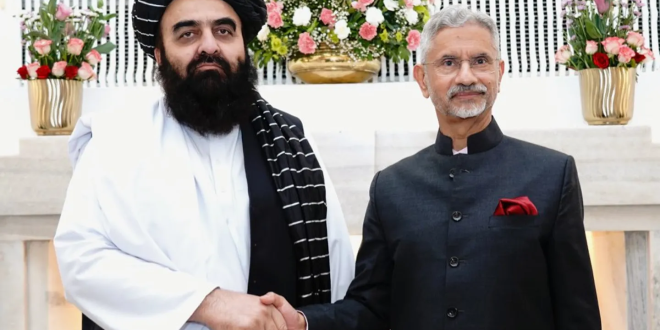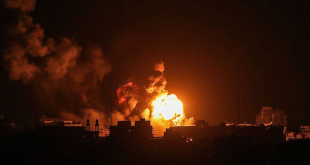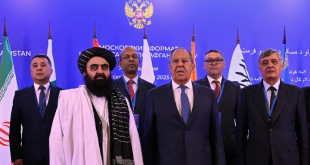KABUL – India has announced that its technical mission in Kabul will be upgraded to a full-fledged Embassy of India, signalling a new phase in diplomatic engagement and development cooperation with Afghanistan. The announcement came after a high-level meeting between India’s External Affairs Minister Subrahmanyam Jaishankar and Afghanistan’s Foreign Minister Amir Khan Muttaqi in New Delhi on Friday.
During their talks, both sides discussed a range of issues including regional security, counterterrorism cooperation, humanitarian assistance, and trade. Jaishankar said the decision marks a step toward “renewing India’s longstanding partnership” with Afghanistan and reaffirmed New Delhi’s commitment to the country’s sovereignty, stability, and development.
“India has a deep and abiding interest in the peace and prosperity of the Afghan people,” Jaishankar said at a joint press briefing. “Upgrading our technical mission to a full embassy reflects that commitment and opens a new chapter in our cooperation.”
Muttaqi, who is visiting India for six days under a temporary UN travel exemption, thanked New Delhi for its support and said Afghanistan would not allow its soil to be used to threaten any country. He identified the militant group Daesh (ISIS) as a major regional threat and called for joint efforts to counter terrorism.
Jaishankar also announced a package of new development initiatives, including six upcoming projects, expanded health and education support, and the donation of 20 ambulances, five of which were symbolically handed over during the meeting. India will also assist in building housing for Afghan refugees and provide additional medical equipment and humanitarian aid.
The visit marks the first formal engagement at this level between New Delhi and Kabul since 2021. India had closed its embassy after the change in power that year, reopening a smaller “technical mission” in 2022 to facilitate humanitarian operations.
Diplomatic observers say the move underscores India’s pragmatic approach to engagement in Afghanistan amid evolving regional dynamics. It comes at a time when Afghanistan’s relations with Pakistan are strained and China’s influence in the region is growing.
While New Delhi has stopped short of formally recognising Afghanistan’s current authorities, the decision to upgrade the mission is seen as a strategic recalibration, allowing India to safeguard its regional interests and revive its extensive development presence.
Muttaqi described India as a “key regional partner” that has “stood by the Afghan people,” adding that Kabul welcomes Indian companies to invest in Afghanistan’s mining and trade sectors.
India’s move is expected to strengthen bilateral cooperation while contributing to broader regional stability and counterterrorism efforts. However, analysts say much will depend on how both sides manage expectations amid international scrutiny over governance and human rights in Afghanistan.
 Afghanistan Times Latest News and Analysis from Afghanistan and the Region
Afghanistan Times Latest News and Analysis from Afghanistan and the Region




